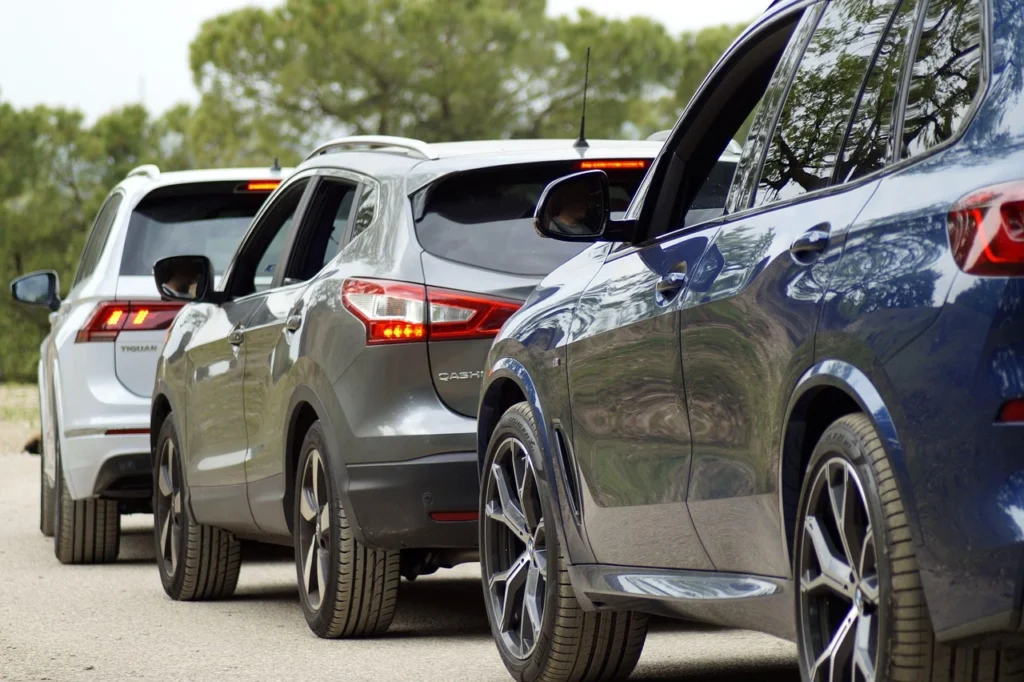Bosch Limited, a flagship company of the global Bosch Group, is a leading supplier of technology and services in India. Established in 1951 and headquartered in Bengaluru, the company operates across mobility solutions, industrial technology, consumer goods, and energy and building technology. With a strong focus on innovation, localization, and sustainability, Bosch Limited plays a pivotal role in shaping India’s automotive transformation while expanding its presence in electrification and digital solutions.

Global and Domestic Economic Landscape
The management opened the discussion with an overview of macroeconomic conditions. Global growth for 2025 is forecast at 3% by the IMF, up from the earlier 2.8%, but challenges remain due to geopolitical tensions, trade tariff uncertainties, and supply chain disruptions. India continues to stand out with an upgraded 6.4% growth projection, underlining its importance as a driver of global expansion.
Domestically, the Reserve Bank of India’s rate cuts, reduction in cash reserve ratio, and easing inflation have improved liquidity. Consumer confidence is also being supported by tax rebates for individuals earning up to ₹12 lakh and stronger rural sentiment. However, monsoon performance will be a crucial factor influencing rural demand in the upcoming quarters.
Automotive Industry Trends
Bosch’s management highlighted significant movement across automotive categories in Q1 FY26:
- Tractors: Recorded strong double-digit growth, supported by timely sowing, favorable monsoons, higher minimum support prices, and improved farm liquidity.
- Three-wheelers: Witnessed robust domestic and export demand, driven by rapid EV adoption in last-mile connectivity.
- Passenger Vehicles: Showed moderate growth, with SUVs, CNG, and EV variants gaining traction, though challenges persist due to high inventory levels and component shortages.
- Commercial Vehicles: Heavy trucks grew on account of pre-buying before new air-conditioning regulations take effect in October 2025. The bus segment thrived under the government’s PM e-Bus Sewa scheme, while light commercial vehicles remained subdued.
- Two-wheelers: Expected to reach an all-time high in FY26, supported by festive demand and strong rural income, though emission norms and safety regulations could be near-term headwinds.
The overall outlook for FY26 remains positive, with growth expected across two-wheelers, tractors, and EVs, supported by infrastructure revival, rising disposable incomes, and localization efforts.
Financial Performance: Q1 FY26 Highlights
Bosch Limited reported revenue from operations of ₹47,886 million, a 10.9% increase over Q1 FY25. The mobility business grew by 14.3%, led by strong demand for diesel components and exhaust gas sensors due to OBD 2 norms. The two-wheeler segment was a key driver of growth, contributing significantly after the ramp-up in sensor sales.
- EBITDA: ₹6,393 million, a 23% year-on-year growth, supported by improved material cost management and better revenue mix.
- Profit After Tax: Surged to 23.3% of revenue, compared to 10.8% in the same quarter last year, aided by divestment gains from the building technologies business.
- Consumer Goods: Grew by 9.3% driven by tools and accessories.
- Building Technologies: Declined significantly after the divestment of Video Solutions, Access, and Communication Systems.
The company continues to streamline its portfolio to focus on high-growth and technology-driven businesses, aligning with its global strategy of being among the top three players in each operating segment.
Strategic Focus Areas
- Electrification and Mobility Solutions
Bosch is expanding its footprint in electrification through advanced technologies such as Vehicle Control Units (VCUs) and electric coolant pumps. These systems are critical for EV performance, battery cooling, and multi-axle support. Bosch is already a global leader in EV technologies and is actively working with Indian OEMs to localize solutions. - Localization and Manufacturing Excellence
The company emphasized its strong localization strategy. Its Bidadi plant supplies localized two-wheeler components, while the Jaipur plant now serves as the single global source for Zexel pumps, supplying directly to Japanese customers. Localization not only reduces costs but also strengthens resilience against global supply disruptions. - Exports
Bosch is increasing exports of NOx sensors, spark plugs, injectors, and diesel systems. With competitiveness based on landed costs, Bosch aims to leverage India’s productivity and quality advantages to gain a stronger share in its global network. - Portfolio Management
Bosch follows a clear principle: focus on segments where it can be in the top three globally. Divestment of its building technologies business reflects this approach. The management reaffirmed commitment to focus areas such as EVs, ADAS, and hydrogen mobility. - Hydrogen and ADAS
Bosch is actively working with OEMs to mature hydrogen technologies for commercial vehicles, although commercialization depends on ecosystem readiness like fueling infrastructure. Similarly, ADAS remains a global strength for Bosch, though in India, much of the portfolio lies outside the listed entity.
Key Investor Q&A Highlights
- MoU with Tata Electronics: Currently at an exploratory stage for semiconductor collaboration, with no immediate financial impact.
- Restructuring of Mobility Business: Provisions being created to align with future technology shifts like common rail systems.
- European Market Outlook: Growth remains muted, reflecting broader stagnation in advanced economies.
- Rare Earth Magnet Issue: Bosch has activated global and India-specific task forces to secure supply and reduce risks.
- Future of Two-wheeler Growth: Strong ramp-up driven by OBD 2 sensors, though volumes are expected to stabilize after initial momentum.
Outlook for FY26 and Beyond
Bosch Limited remains cautiously optimistic. The Indian automotive market is poised for healthy growth across two-wheelers, tractors, and EVs, supported by favorable government policies, rural demand, and festive season momentum. While regulatory changes, rare earth material constraints, and geopolitical risks pose challenges, Bosch’s strategic focus on electrification, localization, and export expansion positions it strongly for sustained growth.
The management closed the call with confidence that Bosch is on track to shape the future of mobility in India, while continuing to deliver strong financial performance and shareholder value.
